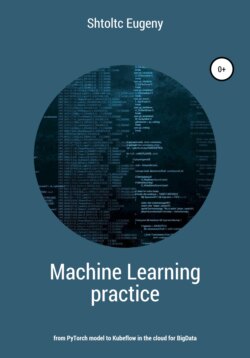Читать книгу Machine learning in practice – from PyTorch model to Kubeflow in the cloud for BigData - Eugeny Shtoltc - Страница 4
Accelerating learning
ОглавлениеThese operations are used for convolutions, which take over 99% of the time and therefore there are specialized tools for their optimization. The calculations themselves are performed not in Python, but in C – Python only calls the API of low-level math libraries. Since such computations are easily parallelized, processors designed for parallel image processing (GPU) are used instead of general-purpose processors (CPUs). So, if a PC has from 2 to 8 cores in a processor, and a server has from 10 to 20 cores, then in a GPU there are hundreds or thousands of highly specialized for processing matrices and vectors. The most popular standard for the group of drivers providing access to the NVidia GPU is called CUDA (Computed Unified Device Architecture), which you can check for support with "lspci | grep-i Nvidia". The alternate is OpenCL promoted by AMD for its GPUs, but development and support in frameworks is rudimentary. For more optimization in processors for ML, special instructions are used that are used in special libraries. For example, Intel Xeon SCalate processors in eight-bit numbers and special pipelines that are activated when using OpenVINO, which gives an increase in speed up to 3.7 times for PyTorch. To speed up the classic ML (classification) XGboost giving an increase of up to 15 times. For now, a low-power CPU is enough for us.
Another type of specialized processor is the reprogrammable processor. So in 2018, Intel introduced a processor with an embedded FPGA (field-programmable gate array) module, developed by the purchased Altera company, in its Intel Xeon SP-6138P. Another major FPGA manufacturer is Xilinx, which created Altera. The idea of programmable logic blocks (field programmable gate arrays) is not new and dates back to long before general purpose processors. The point is not in executing the program on a universal processor, which each time executes an algorithm to solve the task, but in creating a logical architecture of the processor for this task, which is much faster. In order not to order the development and production of an individual microcircuit every time, universal boards are used in which the necessary architecture is created by software. At the time of its creation, ana became a replacement for micro-assemblies, when workers in the production manually placed its elements into a chip. The architecture is achieved by destroying unnecessary links during "sewing", which are built on the principle of a grid, in the nodes of which the necessary elements are located. A popular example is Static RAM, which is used in the BIOS of a computer, prototyping ASICs before mass production, or building the desired controller, such as building an Enthernet controller at home. For programming the controller architecture with a neural network, FPGA controllers are provided by the same Intel and Xilinx using the Caffe and TensorFlow frameworks. You can experiment in the Amazon cloud. A promising area is the use of edge computing neural networks, that is, on end devices such as modules for unmanned vehicles, robots, sensors and video cameras.
